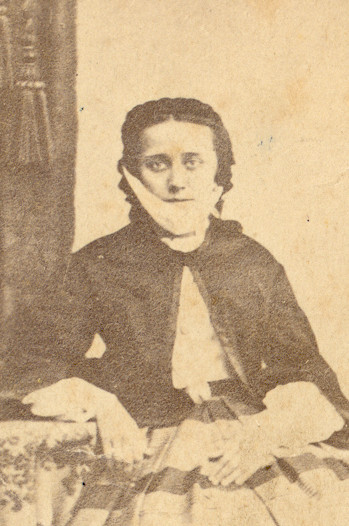
Lilli Suburg
Lilli Suburg (Caroline Suburg, 1. VIII / 20. VII 1841 – 8. II 1923) was a prose writer, journalist and an educator, founder of Linda – the culturally significant first women’s magazine in Estonia.
She was born at Rõusa manor, Vändra parish, Pärnu county and studied in Pärnu at the Marie von Ditmar private school and Pärnu Town Girls’ School. In Tartu, she took the elementary school private tutor exam in 1869. Carl Robert Jakobson played an important role in shaping her by introducing her to diverse literature and inspiring her patriotism. Encouraged by Jakobson, she was an editor of the newspaper Perno Postimees from 1878-1879. In Pärnu, Suburg founded a girls’ school in 1882, which placed an emphasis on national pride. In 1885, the school relocated to Viljandi. In 1887, Suburg founded the women’s magazine Linda in Viljandi, which began appearing as a weekly in 1891. The magazine had tips for housewives, articles on relationships for young women and pieces on the emancipation of women, in addition to translated fiction; original works were mostly written by Suburg herself. The life stories of Estonian writers and literary criticism were also published. From 1899, Suburg lived in Latvia with her stepdaughter, where she also ran a small private school during the turn of the century. In the last years of her life, she lived in Valga with her sisters, where she also passed away. She is buried at Vändra cemetery.
Suburg may be considered Estonia’s first women’s rights activist. In literature, she became known for her first literary attempt, the short story Liina (1877), which she wrote at the encouragement of Jakobson in 1873. As a partly autobiographical work, it depicts an Estonian girl’s resistance to Germanisation. Suburg carried in her the ideals of the national movement, which made her popular. She encouraged women to educate themselves and be equal partners to men. Liina, which has sentimental undertones and German-influenced language use, shows the author’s attempts to portray her characters’ psychology as well. The story was sharply opposed by the Baltic-German circles and has remained her main literary work.
The story Maarja ja Eeva ehk: Suguluse truudus ja armastus mehe vasta (‘Maarja and Eeva or the Faithfulness of Kinship and Love for a Man’, 1881) is also sentimental with idealized characters. The problems of educated women take center stage in the story Linda, rahva tütar (‘Linda, Daughter of the Nation’, 1900), which deals with the fight against alcoholism and women’s rights.
Suburg published her stories and other writings on various social and pedagogical topics in magazines as well. She also wrote memoirs, most notable of which is Suburgide perekond (‘The Suburg Family’, published in the magazine Eesti Kirjandus, 1923-1924), which also provides insight into the society of the time.
A. K. (Translated by A. S.)
Books in Estonian
Stories
Liina. Ühe eesti tütarlapse elulugu, temast enesest jutustatud. Tartu: Schnakenburg, 1877, 102 lk. [Järgmised trükid: 1884, 1927, 2002.]
Linda, rahva tütar. Tartu: Postimees, 1900, 19 lk. [2. trükk: 2002.]
Maarja ja Eeva ehk Suguluse truudus ja armastus mehe vasta. Tartu: Schnakenburg, 1881, 92 lk. [2. trükk: 1927.]
Collected works
Kogutud kirjatööd. Koostanud Aino Undla-Põldmäe. Tallinn: 2002, 503 lk.



